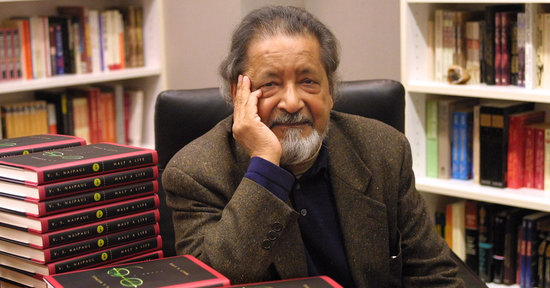Buruma on Naipaul:
'Naipaul’s most famous novel, A House for Mr. Biswas (1961), drew on the father’s story of frustrated ambition. By going back into the world of his childhood, he found the words to create his own link to that universal literary civilization. He often told interviewers that he only existed in his books.
If raw nerves made him irascible at times, they also sharpened his vision. He understood people who were culturally dislocated and who tried to find solace in religious or political fantasies that were often borrowed from other places and ineptly mimicked. He described such delusions precisely and often comically. His sense of humor sometimes bordered on cruelty, and in interviews with liberal journalists it could take the form of calculated provocation. But his refusal to sentimentalize the wounds in postcolonial societies produced some of his most penetrating insights.
My favorite book by Naipaul is not A House for Mr. Biswas, or the later novel A Bend in the River (1979), his various books on India, or even his 1987 masterpiece The Enigma of Arrival, but a slender volume entitled Finding the Center (1984). It consists of two long essays, one about how he learned to become a writer, how he found his own voice, and the other about a trip to Ivory Coast in 1982. In the first piece, written out of unflinching self-knowledge, he gives a lucid account of the way he sees the world, and how he puts this in words. He travels to understand himself, as well as the politics and histories of the countries he visits. Following random encounters with people who interest him, he tries to understand how people see themselves in relation to the world they live in. But by doing so, he finds his own place, too, in his own inimitable words.'
Read the article here.
Sentimentalizing the wound, an accurate definition of kitsch. And of self-pity.
